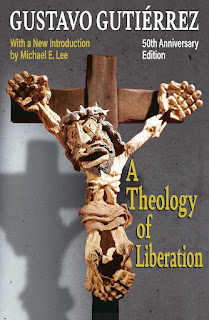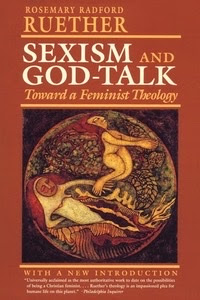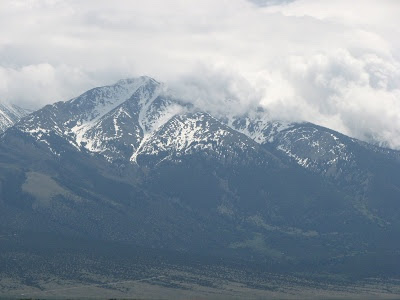The Border, Immigration and Christian Spirituality
1 Praying at the wall for migrants and comprehensive immigration reform.
I have been bringing students and travel seminar participants to Mexico since 1985. Since 2003, my focus has been on bringing people to the US/Mexico borderlands of El Paso, Tx; Las Cruces, NM; and Juarez, Mexico. I just completed leading a group of a dozen members from the Rocky Mountain Synod of the Evangelical Lutheran Church in America which included our bishop, and two other synod staff members, to this area the first week of November.
The goal of these Border Immersions is to give participants the opportunity to go underneath all the rhetoric, posturing, and fake news and fake video to see what is really happening on the border. We do this by providing participants the opportunity to meet and talk with people who live and work on the border so that they have a chance to reassess their theology and moral and political views about immigration, walls, and how we are to respond to God’s call to welcome and love our neighbors.
This year we met and interviewed the Catholic Bishop of El Paso, (see the picture below), the director for 40 years of shelters and immigration centers in El Paso, and another priest in Juarez who has spent most of his life working with immigrants in the borderlands. We visited three shelters that house asylum seekers and talked with their staff (in Juarez, El Paso and Las Cruces). There was a stark difference in these shelters compared to a similar trip I led last year, as the shelters now are essentially empty, as hardly anyone is now being allowed to apply for asylum.
We also heard from an immigration attorney, who gave a presentation on our complicated immigration system, and from a former Border Patrol officer, who worked for 30 years in the El Paso sector and gave a PowerPoint on how things have changed over the years. [Normally we visit the Border Patrol, but they are no longer receiving groups.] We attended a Deportation Hearing at the courthouse in Las Cruces and were able to visit with and ask questions of the judge after the proceedings.
Most importantly, we visited with migrants seeking asylum: this year we interviewed a woman left for dead in South America by her accuser because she filed a complaint against him for sexually abusing young women. On a similar trip last year, we met a typical colonia (poor, rural communities often without water or sewer) family. The mother and father had come to El Paso 30 years ago with their infant son--and then had two American-born children. When the father went back to Mexico for his mother’s funeral, he was not allowed back into the US because the “work papers” in his wallet were no longer considered valid. Also last year, at a shelter in Juarez, I met a 19 year-old gay man from Central America who said he was threatened with death almost every day and a married father with 3 children who was shot 8 times in Mexico because he did not have the “protection money” demanded by a drug cartel.
We also heard from folks who have tried to visit in local detention facilities. They have seen children sleeping on floors, lights on all night long, not allowed enough water or restroom visits. Some are not allowed to bathe. One pastor said she met a youth who had been in detention 2 weeks and never allowed to shower. The stench was so bad she had to burn his clothes.
2We attended a march and worship service celebrating the Día de los Muertos, (Day of the Dead,) which includes the Mexican spiritual belief that the monarchs that return to Mexico Nov. 2 are the souls of the dead returning to comfort us.
As followers of Jesus, how are we to respond to what I have described above? Where does our spirituality lead us? The director of shelters mentioned above, at a time when his shelters were completely full, held a summit for the churches in El Paso, asking them to begin to welcome immigrants into their church buildings for food, shelter, and assistance in how to apply for asylum. A few churches responded right away, but most did not. And so he called another meeting six months later, looked at the gathered clergy and church leaders, and simply said: “Jesus has been knocking on your doors for six months. Are you ever going to let him in?”
The spirituality of this moment in history is not complicated for me. Jesus put it about as clearly as one could: “For I was hungry and you gave me food, I was thirsty and you gave me drink, I was a stranger and you welcomed me, I was naked and you clothed me, I was sick and you visited me, I was in prison, and you came to me.” [Matthew 25:35-36]
One of the failures of what we call mainline Christianity in America is that we never found a way to effectively challenge the theology of the Moral Majority that went public in 1979, based on Christian fundamentalism and Christian nationalism. We were seldom able to find effective ways of getting our theology into public discussion. We are now seeing the results of that failure. However, in just the last month both United States Lutheran and Catholic Bishops have come out with powerful statements on immigration, and they provide the theological and pastoral basis as to why we have throughout all these years welcomed refugees and immigrants into our families, communities, and religious communities.
 |
From the US Lutheran Bishops on October 8, 2025:
As bishops of the Evangelical Lutheran Church in America (ELCA), we write to you in this moment of national and global tension with clarity and conviction. Our faith compels us to stand where Jesus stands—with and for those whom society often seeks to exclude, erase, or diminish.
Our shared confession that every person is created in the image of God (Genesis 1:27) grounds us in the conviction that all people possess inherent dignity. The incarnation of Jesus Christ reveals God’s profound solidarity with humanity—especially with those who are marginalized or oppressed. The gospel we proclaim insists that our neighbor’s need is the occasion for our love and that our public life is shaped by justice, mercy, and a commitment to the common good.
We are to respond to newcomers as we would to Christ—welcoming them, meeting their immediate needs, and advocating for justice in our laws and policies.
We are living through a time when vulnerable communities are being scapegoated and attacked. Immigrants and refugees are vilified, though Scripture commands us to welcome the stranger.
In this time of division and fear, we, as people grounded in our faith, insist on love. This commitment flows from our faith in Christ crucified and risen—the One whose love breaks down barriers, confronts hatred, and transforms hearts.
The US Catholic Bishops’ statement, which came out last week, begins with a profound pastoral orientation:
We are disturbed when we see among our people a climate of fear and anxiety around questions of profiling and immigration enforcement. We are saddened by the state of contemporary debate and the vilification of immigrants. We are concerned about the conditions in detention centers and the lack of access to pastoral care. We lament that some immigrants in the United States have arbitrarily lost their legal status. We are troubled by threats against the sanctity of houses of worship and the special nature of hospitals and schools. We are grieved when we meet parents who fear being detained when taking their children to school and when we try to console family members who have already been separated from their loved ones. Despite obstacles and prejudices, generations of immigrants have made enormous contributions to the well-being of our nation.
The bishops then go on to proclaim their Christian convictions:
The Church’s teaching rests on the foundational concern for the human person, as created in the image and likeness of God (Genesis 1:27). As pastors, we look to Sacred Scripture and the example of the Lord Himself, where we find the wisdom of God’s compassion. The priority of the Lord, as the Prophets remind us, is for those who are most vulnerable: the widow, the orphan, the poor, and the stranger (Zechariah 7:10). In the Lord Jesus, we see the One who became poor for our sake (2 Corinthians 8:9), we see the Good Samaritan who lifts us from the dust (Luke 10:30–37), and we see the One who is found in the least of these (Matthew 25). The Church’s concern for neighbor and our concern here for immigrants is a response to the Lord’s command to love as He has loved us (John 13:34).
4 Our group visiting long-time friends in Juarez.




























